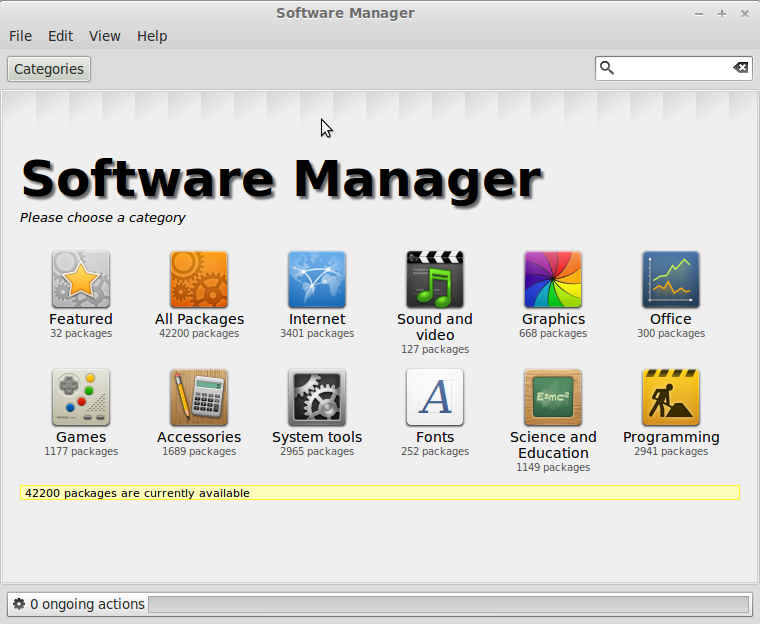Give an Old Laptop New Life with Linux for Earth Day
Earth Day is on April 22nd, 2019 this year. Why not dust off the old laptop in your house and give it a new lease on life as an e-learning development workstation, or as your go-to computer for creating an open textbook in your discipline, or even a mobile music studio to unlock your latent artistic talents?

Photo by Anete Lūsiņa on Unsplash
Over time, the updates to the operating systems on laptops tend to bog down their performance to a point where using it is a painful experience. This is often when we part ways with these devices. But these laptops are still perfectly good if you make a backup all of your old data and install an alternative operating system. Instead of running out and spending hundreds of dollars on a new laptop, you can extend the life of your laptop and postpone the purchase of more equipment by a few more years!
A free and robust alternative operating system
GNU-Linux is a mature and stable operating system (OS) that is a used around the world as the backbone of the Internet in web servers and for industrial computing applications. There are a number of user-oriented desktop ‘flavours’ of Linux have been in development for several years now, with names like Fedora, Linux Mint and Trisquel GNU-Linux. These are known as linux distributions and can be downloaded free of charge and put on a USB key or DVD-ROM for installation. There are also sites that put them on these media for you and sell them at a modest price.
One of the most popular distributions is Ubuntu Linux which provides a comparable computing experience to what you would encounter on a PC with Microsoft Windows or a Mac. While it does not run desktop versions of Windows or Mac software, the OS can open many popular file formats and contains an office suite (LibreOffice), a web browser (Firefox), a powerful graphic editing package (The GIMP), and software for you to view or listen to media files. From the get-go, you have everything you need to write the next great Canadian novel, author an open textbook or collaborate on-line with cloud-based tools.
It is amazing, but the operating system just works upon installation – magically supporting your computer hardware. You can be operational and on-line in minutes! When you install GNU-Linux, many distributions offer you the choice of completely erasing the old operating system or installing alongside the old operating system (you boot the OS that you want to use when you turn on the computer). Make sure to pull any important data off the computer before you start your installation! There are many easy to follow tutorials on how to install Ubuntu on YouTube to choose from to help you get started.
Making your laptop work for you
For more specific needs, Ubuntu has an easy to use software center that works like an app store to provide 1 click installation of software from a huge catalogue of software. If you are hoping to make some asynchronous e-learning modules, you might want to search the software center for Audacity (for audio narrations), OBS Studio (for creating screencasts) and Shotcut (for video editing).

The software manager running in an older version of Ubuntu Linux indicates that 42200 packages from a variety of categories are available for installation should the base install not include a particular package that you need.
For older computers, you can choose a “lite” version GNU-Linux like Lubuntu or Sparky Linux that contain recent software but are designed to be less demanding on older hardware.

Lubuntu is designed to be efficient with your computer resources, and also claims to save energy. Extra points for Earth Day!
Another derivative of Ubuntu is the distribution known as Ubuntu Studio, which is billed as a “free, open, and powerful platform for creative people to create their art.”
The Ubuntu Studio feature tour on their web site showcases the wide array of audio recording and effects packages that are pre-installed that help you to create your own virtual recording studio! There are also a number of package for video editing, graphic creation and manipulation (including 3D modeling and animation) and software for budding photographers! All of this is useful for creating media for your blended courses!
Explore with DistroWatch
If you would like to further explore the wide world of GNU-Linux distributions, the DistroWatch website contains news about new releases of various distributions. Each distribution also has a page with a description of the design philosophy behind the distribution. It may have been created for education, to be suitable for old or single-board computers, or perhaps to facilitate creation by artists. There is even a distribution designed for building your own PVR!
There is an interesting list of the distributions on the homepage of DistroWatch that can help you to explore those distributions which are generating the most interest on the site. Since the sheer number of available distributions can be overwhelming, you may want to focus on exploring the top 5 to 10 distributions that appear in the list to get started.
Personally, I use Linux Mint and Ubuntu on my collection of ‘liberated laptops,’ but I have also used Fedora, Arch and others with great results.
Paying it forward in the educational ecosystem
Updating your old laptop or desktop computer with GNU-Linux is a great gesture for the environment and an excellent way to learn about new software, since the cost barrier is very low.
Although GNU-Linux is free, there are a number of developers that would appreciate a donation for you to encourage their efforts. Why not encourage social and environmental entrepreneurship as part of your Earth Day celebrations?
If you would like to purchase a used laptop or to donate an old laptop, there is a not-for-profit organization in Quebec called Insertech which refurbishes computers. The organization also gives young citizens a second chance by providing them with IT training as a means for their professional reintegration into the workforce.
To learn more about the free and open source software and open research in Higher Education in Quebec, come join Profweb at the 2019 edition of ADTE’s Colloque libre, taking place on June 4th, 2019 in Quebec City.


